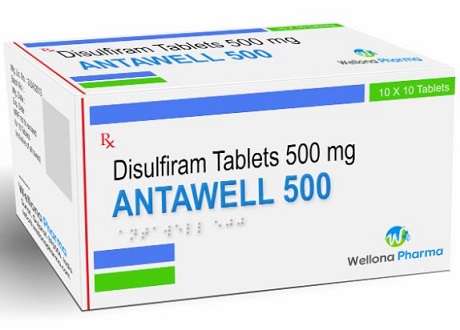Taiwanese study finds that Disulfiram shows promise against COVID-19 and other coronaviruses
Nikhil Prasad Fact checked by:Thailand Medical News Team Jul 17, 2024 9 months, 1 week, 1 day, 9 minutes ago
COVID-19 News: Researchers from Taiwan's leading universities and research centers, including National Yang Ming Chiao Tung University, Academia Sinica, National Taiwan Ocean University, Taipei Medical University, Taipei Veterans General Hospital, and the National Synchrotron Radiation Research Center, have uncovered promising findings in the fight against COVID-19 and other coronaviruses. This
COVID-19 News report explores how a well-known drug, Disulfiram, commonly used to treat alcohol dependence, might become a key player in the battle against these dangerous viruses.
 Taiwanese study finds that Disulfiram shows promise against COVID-19 and other coronaviruses
Taiwanese study finds that Disulfiram shows promise against COVID-19 and other coronaviruses
As early as May 2020,
Thailand Medical News had covered a study by researchers from Boston Children Hospital-USA that proposed that Disulfiram could be repurposed to treat COVID-19. Strangely, the U.S. NIH under Dr Fauci then and the U.S. FDA tried to suppress many American researchers from exploring generic drugs to be repurposed to treat or prevent COVID-19! Many American mainstream media and also American search engines and American owned social media platforms also were complicit in preventing the release of any news coverages with regards to studies or research exploring the use of any generic drugs or supplements to prevent or treat COVID-19 especially Facebook. It was their intentions to only promote the use of the COVID-19 vaccines and drugs made by Pfizer or Moderna.
https://www.thailandmedical.news/news/covid-19-research-could-disulfiram-a-drug-to-prevent-alcoholism,-aid-in-inhibiting-cytokine-storms-in-covid-19
Understanding the Threat of Coronaviruses
Coronaviruses, or CoVs, are highly pathogenic RNA viruses known to cause severe respiratory illnesses and significant economic losses worldwide. The SARS-CoV-2 outbreak in 2019 highlighted the urgent need for effective treatments against these viruses. CoVs, including SARS, MERS, and SARS-2, cause symptoms ranging from fever and cough to severe pneumonia and respiratory failure, with a mortality rate between 1% and 35%.
CoVs also pose a threat to livestock, causing diseases like Porcine Epidemic Diarrhea Virus (PEDV) in piglets, leading to high mortality rates and substantial economic losses. The zoonotic origins of these viruses underscore the importance of developing treatments that can address a wide range of CoV strains.
Targeting the Virus: The Role of Main Protease (Mpro)
Since the onset of the pandemic, scientists have focused on identifying drug targets within the viral replication cycle of CoVs. One such target is the main protease (Mpro), a highly conserved enzyme crucial for viral replication. Mpro facilitates the cleavage of viral polypeptides, a process necessary for the virus to replicate and spread.
/>
Given its essential role and the lack of a human homolog, Mpro has emerged as an attractive target for drug development. Inhibiting Mpro could potentially halt the replication of various CoV strains, making it a critical focus for researchers.
Disulfiram: An Unexpected Contender
Disulfiram, an FDA-approved drug for treating alcohol dependence, has shown promise as an inhibitor of Mpro. Traditionally, Disulfiram works by inhibiting acetaldehyde dehydrogenase, causing unpleasant effects when alcohol is consumed. However, its potential antiviral properties have recently come to light.
Previous studies indicated that Disulfiram could inhibit enzymes like urease and ubiquitin-specific protease (USP), and interfere with the replication of SARS-2 by targeting its main protease. Building on these observations, Taiwanese researchers aimed to explore Disulfiram's broad-spectrum inhibitory effects on Mpro across various CoV strains.
The Study: Methodology and Findings
The researchers conducted a series of experiments to determine the impact of Disulfiram on recombinant Mpros from SARS, MERS, PEDV, and SARS-2. Using analytical ultracentrifugation and circular dichroism analyses, they discovered that Disulfiram treatment blocked the dimeric formation of SARS and PEDV Mpros, decreased the thermostability of SARS, SARS-2, and PEDV Mpros, and facilitated the dimerization and stability of MERS Mpro.
Mass spectrometry and structural alignment revealed that Disulfiram targets the Cys44 residue of Mpros, located near the catalytic His41. This targeting interferes with the substrate's entry to the catalytic center, effectively inhibiting the enzyme's activity. Mutation of the Cys44 residue confirmed its critical role in Disulfiram sensitivity.
Key Findings: Broad-Spectrum Inhibition
The study's results indicate that Disulfiram can function as a broad-spectrum inhibitor for Mpro across different CoV strains. This finding is significant, as it suggests the potential for Disulfiram to be repurposed as an antiviral treatment against current and future CoV outbreaks.
Implications for Future Research and Treatment
The discovery that Disulfiram can inhibit the main protease of various CoVs opens new avenues for antiviral drug development. By targeting a conserved enzyme crucial for viral replication, Disulfiram presents a promising candidate for further clinical trials and drug design.
Additionally, the identification of the Cys44 residue as a key target site highlights a potential strategy for developing new inhibitors. Future research could focus on designing compounds that specifically target this residue, enhancing the efficacy and specificity of antiviral treatments.
Conclusion
The collaborative efforts of researchers from Taiwan's top institutions have led to a breakthrough in the fight against coronaviruses. By uncovering the broad-spectrum inhibitory effects of Disulfiram on Mpro, they have identified a potential new weapon against these dangerous viruses.
The study findings were published in the peer-reviewed International Journal of Biological Macromolecules.
https://www.sciencedirect.com/science/article/abs/pii/S0141813024047603
For the latest
COVID-19 News, keep on logging to Thailand Medical News.
Read Also:
https://www.thailandmedical.news/news/new-insights-into-zinc-s-role-in-fighting-covid-19
https://www.thailandmedical.news/news/arctigenin-found-in-forsythia-viridissima-shows-promise-against-human-coronavirus
